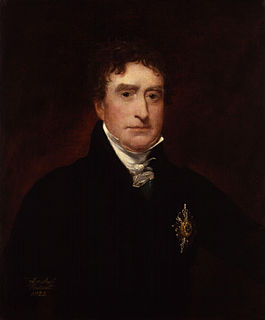A Quote by R. C. Sproul
The only righteousness that meets the requirements of the Law is the righteousness of Christ.
Quote Topics
Related Quotes
For that purpose Christ instituted holy baptism, thereby to clothe you with his righteousness. It is tantamount to his saying, My righteousness shall be your righteousness; my innocence, your innocence. Your sins indeed are great, but by baptism I bestow on you my righteousness; I strip death from you and clothe you with my life.
Blessed are they that hunger and thirst after righteousness: for they shall be filled. Not only do the followers of Jesus renounce their rights, they renounce their own righteousness too. They get no praise for their achievements or sacrifices. They cannot have righteous– ness except by hungering and thirsting for it (this applies equally to their own righteousness and to the righteousness of God on earth ), always they look forward to the future righteousness of God, but they cannot establish it for themselves. Those who follow Jesus grow hungry and thirsty on the way.
True conversion means turning not only from sin but also from depending on self-made righteousness. Those who trust in their own righteousness for conversion hide behind their own good works. This is the reason that self-righteous people are so angry with gospel preachers, because the gospel does not spare those who will not submit to the righteousness of Jesus Christ!
He that doth righteousness; that is, righteousness which the gospel calleth so, is righteous; that is, precedent to, or before he doth that righteousness. For he doth not say, he shall make his person righteous by acts of righteousness that he shall do; for then an evil tree may bear good fruit, yea, and make itself good by doing so; but he saith, He that doth righteousness is righteous; as he saith, He that doth righteousness is born of him.
Yet, after all, faith is not our righteousness. It is accounted to us in order to righteousness (Rom 4:5, GREEK), but not as righteousness; for in that case it would be a work like any other doing of man, and as such would be incompatible with the righteousness of the Son of God; the righteousness which is by faith. Faith connects us with the righteousness, and is therefore totally distinct from it. To confound the one with the other is to subvert the whole gospel of the grace of God. Our act of faith must ever be a separate thing from that which we believe.
Only when we see that the way of God's law is absolutely inflexible will we see that God's grace is absolutely indispensable. A high view of the law reminds us that God accepts us on the basis of Christ's perfection, not our progress. Grace, properly understood, is the movement of a holy God toward an unholy people. He doesn't cheapen the law or ease its requirements. He fulfills them in his Son, who then gives his righteousness to us. That's the gospel. Pure and simple.
I think, that a man never passes the verge of moral humility, till self-righteousness be dethroned, till the high and towering imaginations of the man's own righteousness by the law be levelled by the mighty weapons of the gospel, and he brought to submit to the righteousness of God for justification, which is, in the gospel revealed 'from faith to faith.'




































